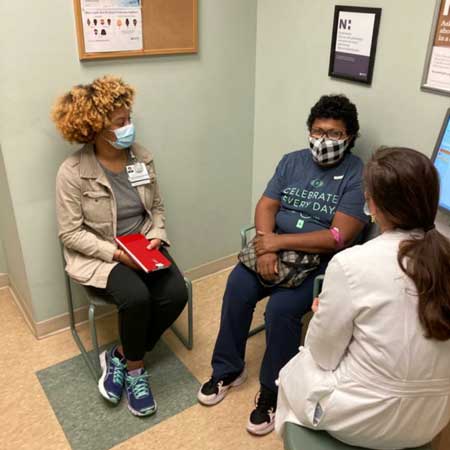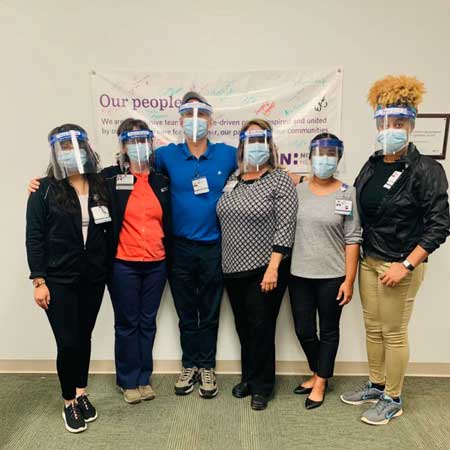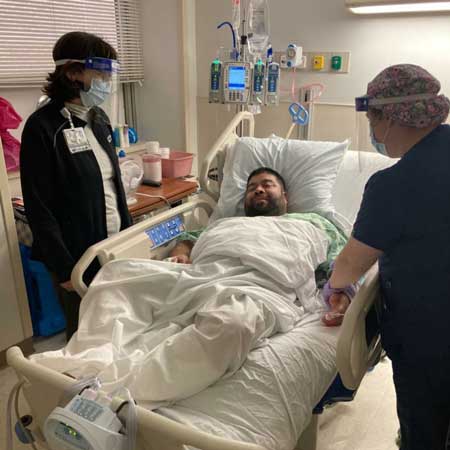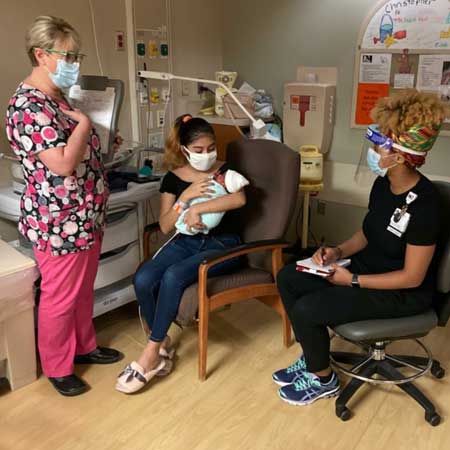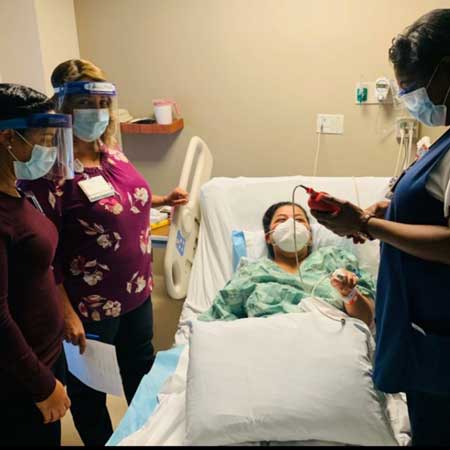Randy Brantley on the vital role of grants in an unprecedented time
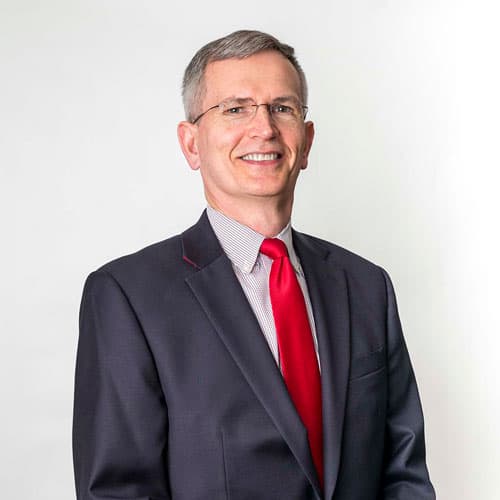
Randy Brantley is a rare breed. While most people fall into the work of grant-seeking, Brantley, grants director at Novant Health Foundation, chose it.
His first encounter with the grants process came during high school, when he was selected to represent his home state of North Carolina in the United States Senate Youth Program.
“When I was a senior in high school, I flew to D.C. and stayed at the Mayflower Hotel for a week with 103 students from across the country,” Brantley said. “During that week, we met everyone who was someone, from President Reagan right on down.”
One of those people was Randolph Hearst, son of William Randolph Hearst and one of the visionaries behind the Senate Youth Program.
“We naively strolled up to Randy Hearst and this other fellow, and they turned to us and explained they were having a conversation about grant funding for the Hearst Foundations,” Brantley said. “They had to choose between two nonprofits. They turned to us and asked, ‘What would you do?’ I’ll never forget being gobsmacked.”
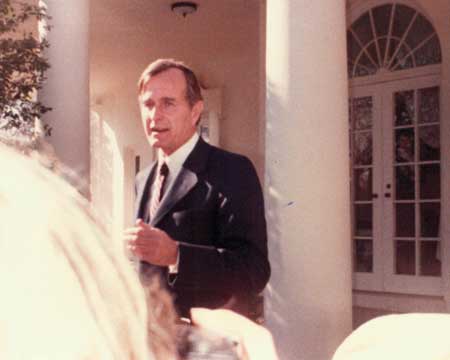
Former Vice President George H.W. Bush addressing delegates to the 1981 U.S. Senate Youth Program in the Rose Garden of the White House. 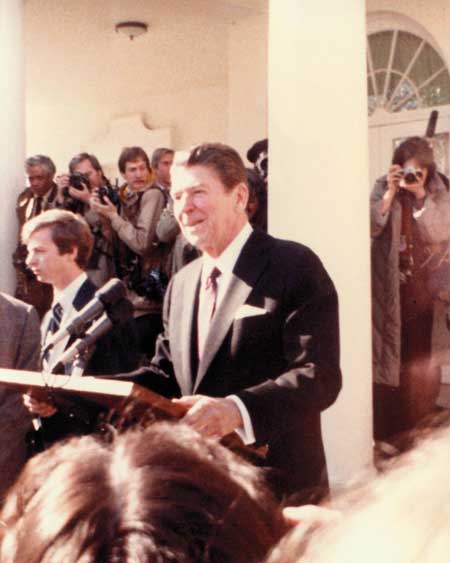
President Ronald Reagan addressing delegates to the 1981 U.S. Senate Youth Program in the Rose Garden of the White House. 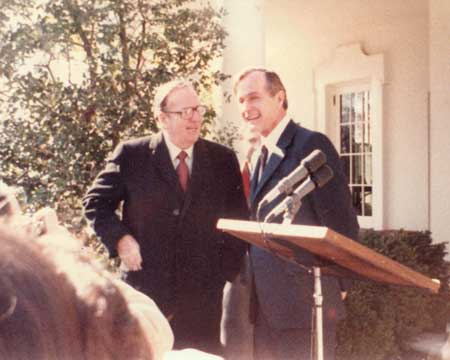
Randolph Apperson Hearst with former Vice President George H.W. Bush with delegates to the 1981 U.S. Senate Youth Program in the Rose Garden of the White House.
It was a moment that brought to life the power and importance of grant work for Brantley. Foundations and organizations dedicate vast sums of money every year to projects across the country, and, for many, those funds are a matter of life or death. When money comes in, a project moves forward. When the money goes somewhere else, a project stalls.
Brantley wanted to help more of those projects come to life.
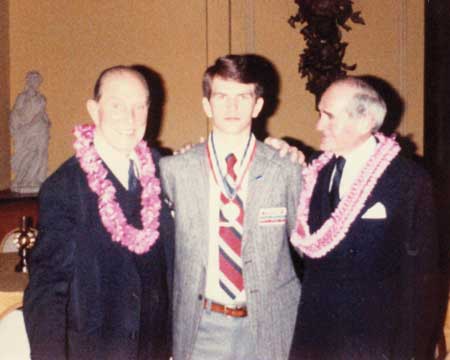
Now, at Novant Health Foundation, Brantley and his team are charged with applying for those grants — a process that can be complex and intense, he explained. The stakes are high, and there is significant competition.
“Anyone who wants to work in this profession has to be a little bit of an adrenaline junkie because we are so deadline-driven, and there are dollars attached to all of those deadlines,” Brantley said.
But the wins, when they come, have profound impact for the communities Novant Health serves.
At the onset of the pandemic, for instance, the Springsteen Foundation, Barings and Ally Bank all stepped up to provide grants. Barings, the global management investment firm, and the Springsteen Foundation each contributed $50,000 to the Hope for Remarkable Team Aubergine Fund (formerly the Novant Health COVID-19 Disaster Relief Fund), which was created to provide our team members in need with access to financial and housing assistance, as well as support with child care and other essential services. Ally Bank issued a $25,000 grant, which went towards the purchase of a much-needed ventilator.
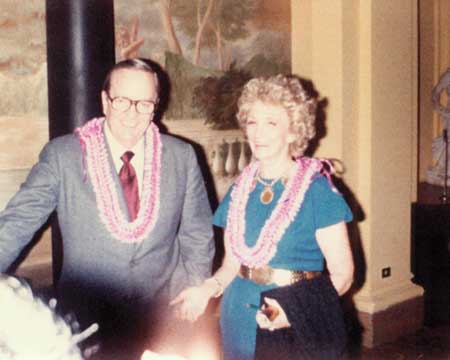
Brantley’s team has also applied to The Duke Endowment for a grant that would fund a COVID-19 predictive analytics model that would help predict which community residents and team members may be most likely to be exposed to and/or contract COVID-19. The model could help healthcare providers better understand areas of need in the communities they serve and allow Novant Health to redirect care accordingly.
“That application will be considered in February, and it’s an example of how funders are already looking to the future of how we address the remainder of the COVID-19 pandemic and how we prepare for the next one,” Brantley said.
While the pandemic still stands at the forefront of our collective consciousness, there are other projects coming to life at Novant Health, thanks to generous grant funding.
For example, one recent grant from The Duke Endowment funded the launch of a Cultural Ambassadors Program within three Novant Health markets: Rowan County, Charlotte and Winston-Salem.
“These cultural ambassadors are team members who serve as interpreters, mainly for Hispanic or Latinx patients. They make it a point to understand the cultural nuances of providing healthcare to those populations, whether it is the way in which a person’s faith perspective affects their approach to healthcare or particular cultural traditions that may affect healthcare,” Brantley said. “These ambassadors are bilingual, and many of them are of Hispanic backgrounds, so it is a case of patients being able to be served by people who look like them and speak like them and understand their culture. By helping people better understand and improve their healthcare, it reduces costs for the patient and the healthcare system.”
Over the course of his career in grant-seeking, Brantley has worked for educational institutions and nonprofits, both of which offered him the opportunity to make an impact. But in his work for Novant Health, Brantley has found that potential for impact to be even more profound.
“We have a strong reputation when it comes to seriously addressing the needs of the communities we serve,” Brantley said. “It’s not just rhetoric; it’s action.”
You can take action, too, by making a contribution to Novant Health foundation.
Whether you are an individual or an organization, your gifts have the ability to improve healthcare in your community. Join us and make your contribution today.
